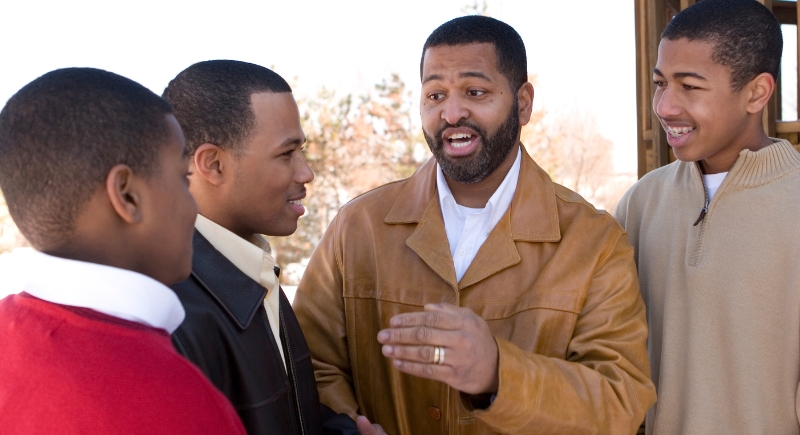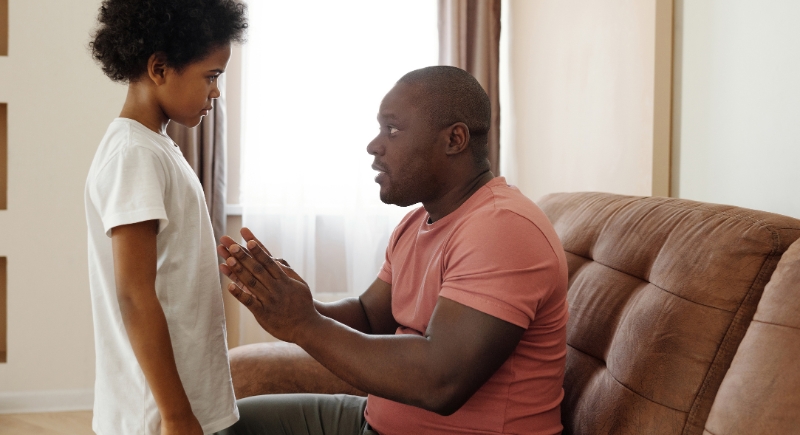Fathers shape how their children understand adulthood, identity, and connection. But too often, key lessons go unsaid, not out of neglect, but because many dads were never taught to say them. That silence leaves the kids filling in the blanks for themselves.
While some figure it out eventually, there are those who spend years carrying confusion, shame, or resentment they never knew they could let go of. If you can relate, here are some things your dad should’ve told you in your formative years.
“I’ve messed up more than once.”

When dads only show their wins, kids assume mistakes mean failure. That belief leads to shame when things go wrong. A father who admits his own missteps teaches that messing up is part of learning. Hearing, “I struggled too,” opens a door to empathy and helps children avoid internalizing guilt over being human.
“Let’s talk about what we have.”

Generations of parents avoid talking about race, class, or inequality, sometimes because they don’t know how, and other times because they believe silence feels safer. That gap leaves most kids unaware of how history shapes daily life.
“Your opinions matter in this house.”

Children who aren’t invited to share their thoughts struggle to express themselves later. Encouraging clear opinions builds self-respect early. That kind of confidence improves communication and shapes how they handle future decisions and boundaries. Individuals who grow up feeling heard learn not to defer out of fear or shut down when challenged.
“Here’s what I actually do at work.”

Most little ones assume their parents leave for work in the morning and return in the evening, with little in between. Their dads’ jobs seem vague or disconnected from real life. When someone breaks down what their work involves—who they talk to, what decisions they make, what challenges they face—it shows that work isn’t just about paying bills or wearing the right clothes.
“I wasn’t always this version of me.”

It’s hard for kids to see their fathers as anything other than who they are right now. When they don’t receive context, they miss the long road behind the authority figure. Revealing memories—mistakes, friendships, regrets—adds depth and makes them relatable.
“We can talk about how you feel.”

A father who doesn’t talk about emotions sets a pattern that’s hard to break. Young ones learn to hide, minimize, or ignore their feelings, then struggle later with relationships and mental health. Creating space for emotions leads to self-awareness and reduces shame.
“It’s okay if sports aren’t your thing.”

Expecting every child to enjoy the same activities leads to unnecessary pressure. If a dad signals that liking football is a requirement, kids will pretend and then feel like frauds when they don’t love it. Encouraging genuine interests leaves room for children to explore what they truly care about.
“Here’s how I handled relationships.”

Dating often feels like a secret course with no textbook. Many young adults figure things out through trial and error, sometimes painfully. But a male guardian who offers direct, thoughtful advice, such as how to treat people, what respect looks like, how to walk away kindly, gives his child an advantage.
“I’m proud of who you are.”

Saying “I’m proud” without conditions shows kids they don’t need to earn approval through accomplishments. A study found that when parents express pride openly and frequently, children report stronger emotional well-being and feel connected at home.
“Here’s something I wish I’d done differently.”

Sharing regrets can turn into a teaching moment. When dads talk about a poor decision and what they learned, they model reflection and humility. Kids pick up that it’s okay to suffer a setback and then adjust the course. They also realize that being an adult doesn’t mean always getting it right.
“That was my fault. I’m sorry.”

Traditionally, fathers avoided apologizing, assuming it might undercut authority. But saying “I’m sorry” doesn’t diminish respect. Owning mistakes is a sign of accountability, which matters more than control. That lesson reduces defensiveness and allows little ones to respond calmly in conflict.
“I love you, and I always will.”

Naturally, numerous fathers assume that their children know they’re loved. But silence makes that assumption risky. Expressing love provides emotional clarity that actions alone don’t always communicate. Those words become anchors during uncertain seasons.
“Let’s talk to God together.”

For those who want to pass on faith, it helps to show what belief looks like in daily life. Praying aloud with a child—during stress, gratitude, or decisions—makes spirituality visible and practical. It becomes part of how children process the world.
“You pick. I want to join you.”

Asking your child what they want to do doesn’t flip the household hierarchy. It gives them a voice. When a dad sets aside time for their interests—drawing, Legos, or baking—it sends a clear message: your time matters. Children remember who engaged with them, not who bought them things.
“Ask questions. You don’t need all the answers.”

Some kids stop asking questions after being told they’re talking too much or asking the wrong things. Fathers sometimes dismiss curiosity out of impatience, tiredness, or discomfort. That reaction teaches kids to stay quiet, even when something matters.